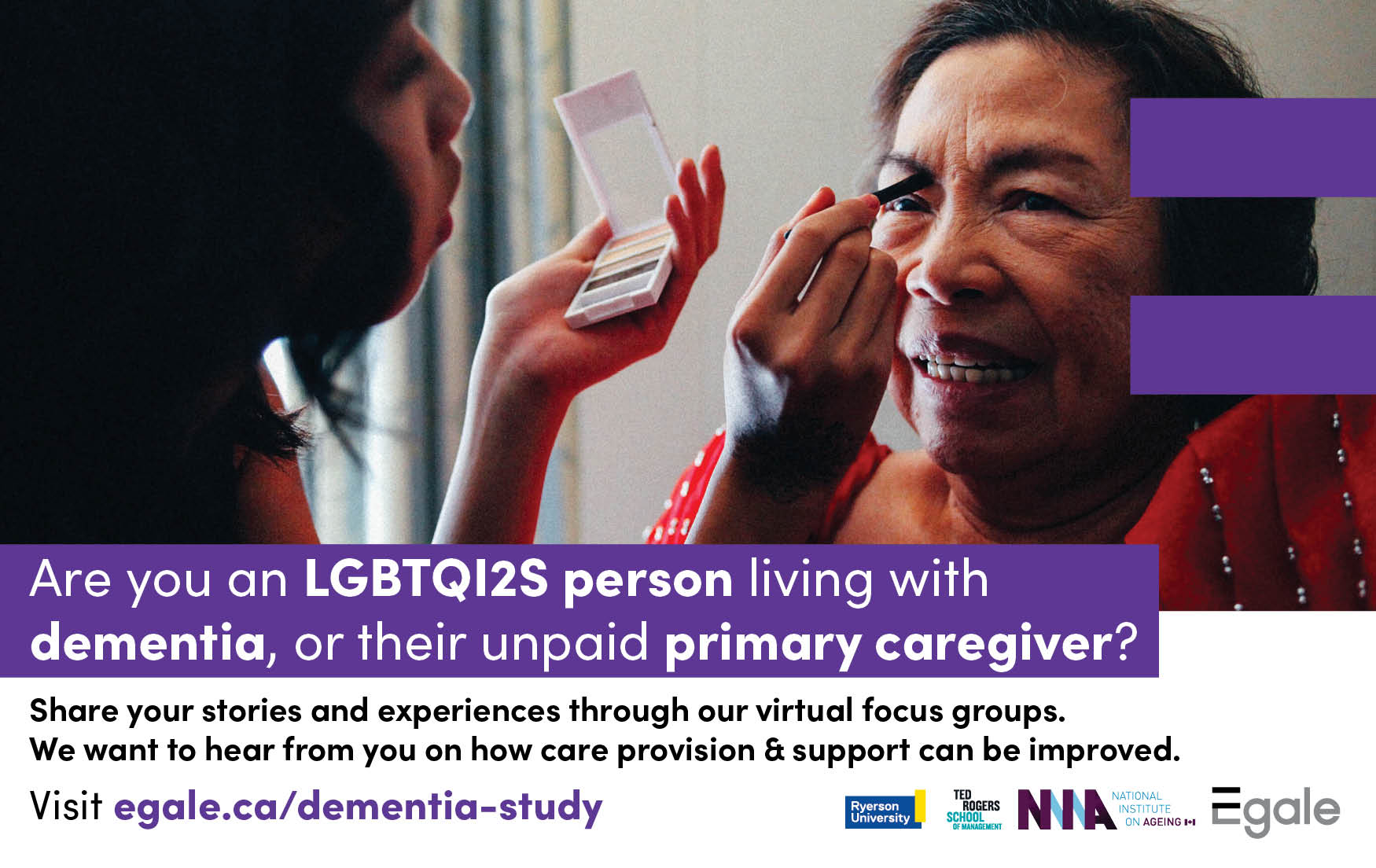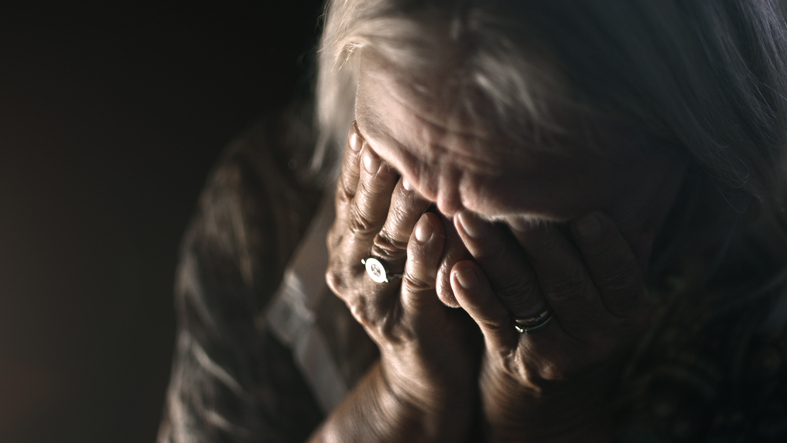Advertorial – Are you an LGBTQI2S person living with dementia, or an unpaid primary caregiver for an LGBTQI2S person living with dementia?
Egale, Canada’s leading organization for LGBTQI2S (lesbian, gay, bisexual, trans, queer, intersex, and Two Spirit) people and issues is looking for participants to take part in a dementia study focus group!
Share your stories about the current state of care and support for LGBTQI2S people living with dementia in Canada. We want to hear from you on how care provision and support can be improved!
We welcome participation of people with various additional interconnecting social identities and, in this study, particularly seek to amplify the perspectives of BIPOC (Black, Indigenous, people of colour) community members and those who live in rural areas across Canada.
Recognizing the gap in current understandings of living and/or caring within the intersections of LGBTQI2S identities and dementia, this focus group study aims to better understand the unique experiences and needs of LGBTQI2S people living with dementia (PLWD) and their unpaid caregivers in Canada.
As a sign of appreciation, each participant selected will receive a $50 Amazon e-gift card at the beginning of their designated focus group.
The results of this research will be used to help inform educational efforts and awareness campaigns, and may also inform policy decisions and programming options.
Learn more and apply at egale.ca/dementia-study or contact dementiastudy@egale.ca
This research study is being conducted by Dr. Samir Sinha, MD, DPhil, FRCPC, AGSF, Director of Health Policy Research, and Dr. Ashley Flanagan, PhD, Research Fellow, National Institute on Ageing, Ryerson University in partnership with Dr. Dai Kojima, PhD, Director of Research, and Celeste Pang, PhD(c), Senior Research Officer, LGBTQI2S Health, Aging, and Housing, Egale Canada.
This research study has been reviewed and approved by the Ryerson University Research Ethics Board [2020-349] and is funded by a Public Health Agency of Canada Dementia Community Investment grant.






